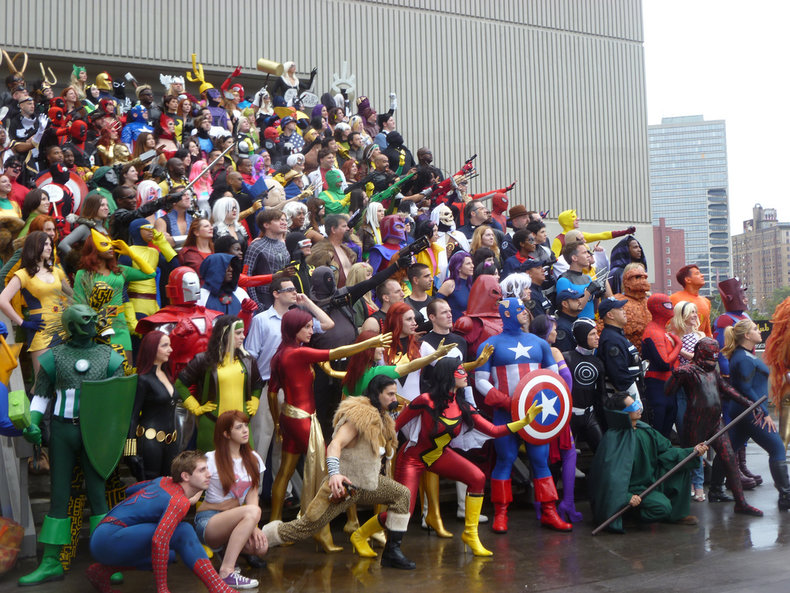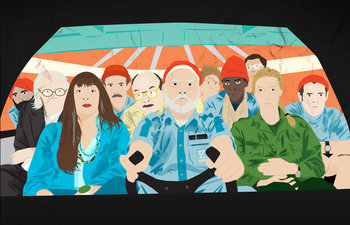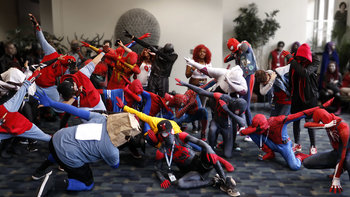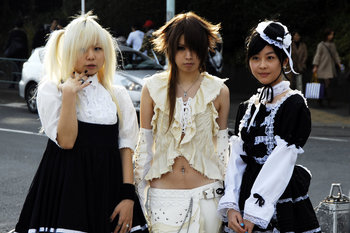
Enthusiasts
In order to be a nerd, an individual must embrace a hobby, culture or profession with great enthusiasm such that they may have little time for anything else. Individuals who embrace mainstream culture such as sports aren't typically considered nerds. As such, nerds may be described as extreme enthusiasts of obscure interests in areas such as pop culture, technology and fashion. In many cases, a nerdy subculture loses its nerdiness when it becomes more mainstream. For example, video gaming was once an obscure hobby that is now an element of mainstream culture.Countersignaling
The term nerd is ostensibly negative but is also associated with positive attributes such as intelligence. As such, it is common for people to countersignal by claiming to be a nerd or associating themselves with nerdy hobbies or styles. On the surface, this passes as a self-deprecation or humility where it is designed to demonstrate social status such as intelligence.Education
It is commonly considered nerdy to be enthusiastic about an academic subject that most people find uninteresting or challenging. For example, doing difficult math for fun can be viewed as nerdy. The term nerd has somewhat anti-intellectual connotations alongside the epithet egghead with the later implying an intellectual who is elitist, ineffectual and out of touch with reality.Otaku
Otaku is a Japanese word for people with obsessive interests that cause them to become outcasts from society. The Japanese media have a tendency to portray otaku as dangerous and have historically associated the term with a number of terrible crimes. Despite this intensely negative stigma, it is common for nerd subcultures in Japan to embrace the otaku label. The term otaku is also used in English to describe diehard fans of Japanese pop culture.Fandom
Fandom is a series of subcultures based on enthusiasm for popular culture such as a genre, series or character from films or video games. Members of fandom subcultures may have deep empathy for a series and experience a strong sense of camaraderie with other fans. Fandom culture is often participative with fans contributing creative works such as fan fiction and fan art. It also tends to be social with events such as cosplay conventions that allow people with similar interests to meet and interact.Fanboy & Fangirl
Fanboy and fangirl are terms that are often used in a negative sense to describe individuals who are overly excited about a brand, technology or element of popular culture.Hipster
Hipster is a somewhat derogatory term for a subculture that views itself as a cultural elite. The hipster subculture shun anything perceived as mainstream culture and seek music, fashion and lifestyles that they view as non-conformist. This creates a bit of irony as the hipster subculture has its own norms of conformity. Due to their enthusiasm for obscure elements of culture such as retro fashions, the hipster subculture may be viewed as somewhat nerdy.Wonk
Wonk is a term for someone who is nerdy about an practical topic such as making money or gaining political influence. A wonk is extremely self-disciplined and learns the obscure details of a situation such that they become useful to power structures such as a political party, government or firm.Geek
Geek is a term for a social awkward person. Nerds may become geeks do to overfocus on their interests at the expense of social pursuits. Geeks may also thrive in nerd subcultures where people aren't as uptight about mainstream social norms.Word Origin
In its current spelling, the word nerd first appeared in the 1950 Dr. Seuss book If I Ran the Zoo with the line "a Nerkle, a Nerd, and a Seersucker too." However, the word nerd possibly emerged as an alteration of the 1940s slang "nert" meaning a stupid or crazy person. By 1965, the word had taken on connotations of bookishness. The word remained obscure until it was popularized by the 1974 to 1984 American sitcom Happy Days.| Overview: Nerds | ||
Type | ||
Definition | An individual who is strongly absorbed by their hobbies and interests. | |
Related Concepts | ||































